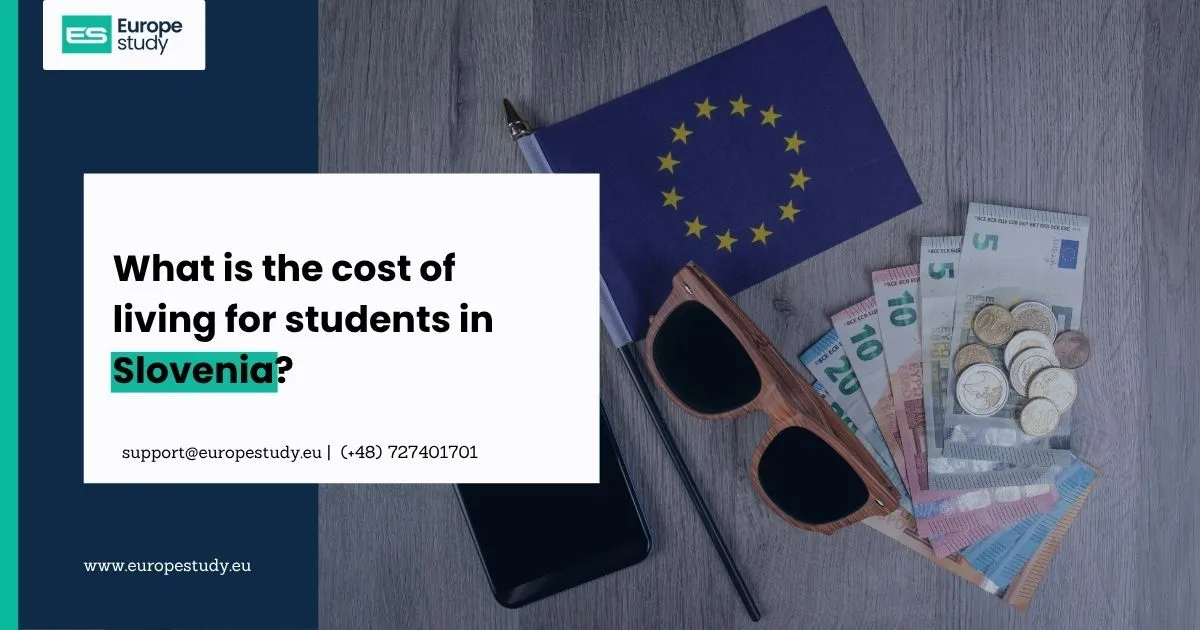
What is the cost of living for students in Slovenia?
If you’re planning to study in Europe, Slovenia is one of the most affordable and welcoming destinations for international students. Known for its high-quality education, English-taught programs, and safe environment, Slovenia offers excellent value for money compared to other EU countries.
But how much does it actually cost to live there as a student?
Here’s a complete breakdown of the average cost of living for students in Slovenia — including accommodation, food, transport, and more.
1. Average Monthly Living Costs
On average, international students in Slovenia spend around €500 to €800 per month, depending on the city, lifestyle, and type of accommodation.
Here’s a general breakdown of monthly expenses:
| Expense Category | Estimated Monthly Cost (€) |
|---|---|
| Accommodation (shared or dorm) | 150 – 300 |
| Food and groceries | 150 – 250 |
| Transportation | 20 – 40 |
| Study materials | 30 – 50 |
| Utilities and internet | 50 – 80 |
| Leisure and personal expenses | 100 – 150 |
| Total (approx.) | €500 – €800/month |
Living in the capital city Ljubljana tends to be slightly more expensive than smaller cities like Maribor or Nova Gorica.
2. Accommodation Options in Slovenia
Finding affordable housing is one of the most important parts of student life.
Here are the common options:
-
Student Dormitories: The most affordable option, costing €120 – €200 per month.
-
Shared Apartments: Average rent ranges from €250 – €350 per person.
-
Private Studios or Flats: Usually between €400 – €600, depending on the location.
Most universities in Slovenia provide student dormitory facilities or help students find housing through verified accommodation partners.
3. Food and Groceries
Food prices in Slovenia are reasonable compared to Western Europe.
-
Students spend around €150–€250 per month on meals and groceries.
-
Eating out in student-friendly restaurants costs around €5–€8 per meal.
-
Many students benefit from “student meal subsidies”, which provide discounts at participating restaurants and cafes — making eating out even more affordable.
4. Transportation Costs
Public transport in Slovenia is efficient and affordable.
-
A monthly public transport pass costs around €20–€25 in most cities.
-
In smaller towns, bicycles are a popular and eco-friendly option.
-
Students under 26 often receive transport discounts with valid student ID cards.
If you live near your university, walking or cycling can significantly cut transport costs.
5. Health Insurance and Utilities
Health insurance is mandatory for all students.
-
EU students can use their European Health Insurance Card (EHIC).
-
Non-EU students must buy private health insurance, costing around €30–€50 per month.
Utilities (electricity, water, heating, internet) cost around €50–€80 per month for shared accommodation.
6. Other Living Expenses
Other common expenses include:
-
Mobile and internet plans: €10–€20 per month
-
Study materials/books: €20–€40 per month
-
Entertainment (movies, social activities): €30–€60 per month
Slovenia offers plenty of student discounts for cultural events, gyms, museums, and public transport.
7. Cost of Living by City
Here’s an overview of what you can expect to spend in different student cities:
| City | Estimated Monthly Cost (€) |
|---|---|
| Ljubljana (capital) | 650 – 850 |
| Maribor | 550 – 700 |
| Nova Gorica | 500 – 650 |
| Koper | 550 – 700 |
Students who choose smaller cities usually enjoy lower rent and daily expenses.
8. How to Manage Student Expenses
Here are a few practical tips for managing your budget in Slovenia:
-
Use student discounts for meals, travel, and entertainment.
-
Share accommodation to lower housing costs.
-
Cook at home instead of eating out daily.
-
Apply for scholarships or part-time work to support your living expenses.
With careful planning, it’s possible to live comfortably in Slovenia on €500–€600 per month.
9. Work Opportunities for Students
International students can work up to 20 hours per week during their studies and full-time during semester breaks.
Part-time jobs in retail, hospitality, or tutoring can help cover monthly expenses while gaining valuable experience.
Conclusion
Slovenia offers one of the most affordable study experiences in Europe, with total living costs averaging €500–€800 per month.
From affordable housing to student meal discounts and part-time job options, it’s an ideal destination for international students seeking quality education and financial flexibility.
Apply now at EuropeStudy.eu — our experts will guide you through admission, accommodation, and visa support for your 2025 intake.
FAQs
1. Is Slovenia an affordable country for international students?
Yes. Slovenia is one of the most affordable EU countries, with average monthly costs between €500–€800.
2. How much does student housing cost in Slovenia?
Dormitory housing costs €120–€200, while shared apartments range from €250–€350 per month.





